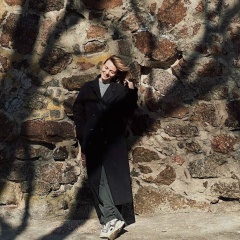Продолжу про популярные заблуждения.
Несмотря на очевидную простоту, не все понимают, что если А нарушает закон, то ответственность за это лежит на А.
Т.е. если суды выносят незаконные постановления, если менты незаконно избивают людей и т.п. — ответственность на них. Не организаторах митинга, а на тех, кто нарушает закон лежит ответственность за то, что закон нарушен и люди страдают. Это вроде бы просто, но редко действительно понимается людьми.
И важное — про согласование митинга. Конституция РФ закрепляет за людьми право мирно собираться. Поэтому функция согласования не включает в себя решение "разрешить или не разрешить", они лишь помогают собирающимся собраться так, чтобы вписаться в жизнь города: подобрать свободное место и время. Они не могут не согласовать вообще (если заявка была вовремя и законно подана). Т.е. в тот момент, когда они не согласовывают, они нарушают закон.
Еще раз: согласование митинга — это не запрос на разрешение, это обращение к слугам (слугам народа, таки да), чтобы те помогли не пересечься с другим массовым мероприятием. Не более того. На этом функция слуг заканчивается. И то основание, что слуги не смогли справиться со своей небольшой функцией говорит о неспособности слуг выполнять свои функции, а не о нелегитимности мероприятия.
Хотя это, оказывается, не всем понятно.
Несмотря на очевидную простоту, не все понимают, что если А нарушает закон, то ответственность за это лежит на А.
Т.е. если суды выносят незаконные постановления, если менты незаконно избивают людей и т.п. — ответственность на них. Не организаторах митинга, а на тех, кто нарушает закон лежит ответственность за то, что закон нарушен и люди страдают. Это вроде бы просто, но редко действительно понимается людьми.
И важное — про согласование митинга. Конституция РФ закрепляет за людьми право мирно собираться. Поэтому функция согласования не включает в себя решение "разрешить или не разрешить", они лишь помогают собирающимся собраться так, чтобы вписаться в жизнь города: подобрать свободное место и время. Они не могут не согласовать вообще (если заявка была вовремя и законно подана). Т.е. в тот момент, когда они не согласовывают, они нарушают закон.
Еще раз: согласование митинга — это не запрос на разрешение, это обращение к слугам (слугам народа, таки да), чтобы те помогли не пересечься с другим массовым мероприятием. Не более того. На этом функция слуг заканчивается. И то основание, что слуги не смогли справиться со своей небольшой функцией говорит о неспособности слуг выполнять свои функции, а не о нелегитимности мероприятия.
Хотя это, оказывается, не всем понятно.
I will continue about popular misconceptions.
Despite its obvious simplicity, not everyone understands that if A breaks the law, then the responsibility lies with A.
Those. if the courts make illegal decisions, if the cops illegally beat people, etc. - responsibility for them. Not the organizers of the rally, but those who break the law are responsible for the fact that the law is violated and people suffer. It's seemingly simple, but rarely really understood by humans.
And the important thing is about the approval of the meeting. The Constitution of the Russian Federation gives people the right to assemble peacefully. Therefore, the reconciliation function does not include the decision "to allow or not to allow", they only help those who are going to get together so as to fit into the life of the city: to find free space and time. They cannot but agree at all (if the application was submitted on time and legally). Those. the moment they don't agree, they are breaking the law.
Once again: the approval of a rally is not a request for permission, it is an appeal to the servants (servants of the people, yes) so that they help not to interfere with another mass event. No more. This ends the function of the servants. And the reason that the servants could not cope with their small function speaks of the inability of the servants to perform their functions, and not about the illegitimacy of the event.
Although this, it turns out, is not clear to everyone.
Despite its obvious simplicity, not everyone understands that if A breaks the law, then the responsibility lies with A.
Those. if the courts make illegal decisions, if the cops illegally beat people, etc. - responsibility for them. Not the organizers of the rally, but those who break the law are responsible for the fact that the law is violated and people suffer. It's seemingly simple, but rarely really understood by humans.
And the important thing is about the approval of the meeting. The Constitution of the Russian Federation gives people the right to assemble peacefully. Therefore, the reconciliation function does not include the decision "to allow or not to allow", they only help those who are going to get together so as to fit into the life of the city: to find free space and time. They cannot but agree at all (if the application was submitted on time and legally). Those. the moment they don't agree, they are breaking the law.
Once again: the approval of a rally is not a request for permission, it is an appeal to the servants (servants of the people, yes) so that they help not to interfere with another mass event. No more. This ends the function of the servants. And the reason that the servants could not cope with their small function speaks of the inability of the servants to perform their functions, and not about the illegitimacy of the event.
Although this, it turns out, is not clear to everyone.
У записи 14 лайков,
0 репостов,
606 просмотров.
0 репостов,
606 просмотров.
Эту запись оставил(а) на своей стене Аркадий Бабаев



































